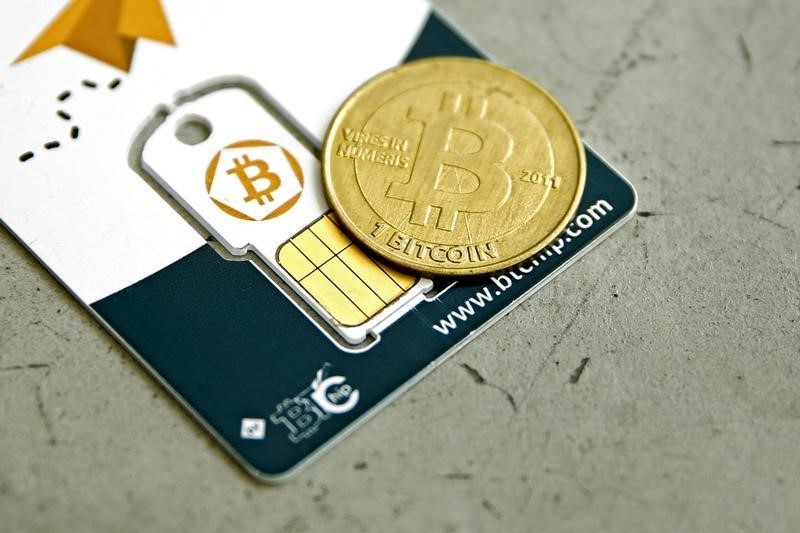Photo by Stem List on Unsplash
This post contains sponsored advertising content. This content is for informational purposes only and is not intended to be investing advice.
Non-fungible tokens (NFTs) made a giant leap in popularity during the pandemic with categories such as art, avatars, gaming, and music taking off. But it was arguably just a matter of time until the global fixation on sports entered the NFT mix.
The days when kids would ride their bicycles to the local store and buy Topps Co. trading cards are more or less over. Topps lost a few of its huge sports contracts and was gobbled up by rival company Fanatics.
Meanwhile, many collectors are abandoning cards altogether and moving to NFTs, which offer proof of ownership of a sports video, photo, audio, or any other digital capture of a unique happening in sports.
Sports teams and competitions have recently provided fans exclusive access to NFTs. They are part of an explosion in the collectible tokens that take in culture and entertainment.
The value of the broader NFT market is forecast to grow to $75 billion by 2025, from $14 billion today, and much of that growth is drawn from the boom in sports NFT products. Professional services firm Deloitte predicts the NFT sports market will generate more than $2 billion in sales this year.
NFTs work as proof of ownership of a particular item in the sports market. In the case of artworks or sports collectibles, the NFT allows the owner to view, digitally display and trade the item.
DAZN is the latest sports company to announce projects involving NFTs. The British-owned sports media company is talking to soccer’s Premier League about working out an agreement with NFT platforms for the licensing rights to the league’s top-tier digital assets. Italian football club AC Milan recently launched its own NFT campaign for fans.
In the U.S., sports fantasy and betting platform DraftKings Inc. (NASDAQ: DKNG) offers autographs from famous sporting stars that can be collected and viewed in a digital portfolio.
Meanwhile, Vancouver, Canada-based esports and sports-wagering platform Fandom Sports Media Corp. (CSE: FDM) (OTCQB: FDMSF) (FSE: TQ43) is not only entering the NFT market but is taking an additional technology step through a partnership with cryptocurrency platform Polygon. The partnership aims to support efficient and scalable NFT minting on Fandom Sports' FANDOMART NFT marketplace.
Though many existing NFT platforms use Ethereum, the reality is that Ethereum is too costly and slow for many in its current form for mass adoption. It can cost up to $70 to make artwork, and when the price of some NFTs are around the $50 range, you’ve already lost money. This is one of the reasons Fandom Sports launched its NFT Marketplace on Polygon's layer 2 Ethereum scaling protocol.
Launching in the second quarter this year, FANDOMART will reside as a module within the company’s fan engagement and wagering ecosystem with players on the Fandom UIA Platform able to view streamed esports and sports content, make predictions and wagers against their friends or the global community and create NFTs from their favorite events on the fly.
To accelerate Fandom’s vision for FANDOMART, the company sought out a fast, inexpensive, and secure blockchain, which led to the Polygon partnership. Polygon, formerly known as Matic, is a blockchain framework known as a "side chain" that builds and connects Ethereum-compatible blockchain networks.
The Fandom service supports numerous minting protocols as well as interoperability with other exchanges. As a result, the company will regulate an environment where an entire ecosystem of blockchains no longer functions as closed-off silos but instead as part of a broader interconnected spectrum. The Polygon network is much faster than Ethereum, and network fees are generally just pennies.
Fandom believes the partnership will accelerate its future goals in the NFT space. "Having an industry-leading blockchain protocol partner with the technical reach and marketing scope of Polygon will give us the ability to capitalize on the company's NFT-on-the-fly solution by deploying with top-tier e-sports and sports organizations,” Fandom Sports President and CEO David Vinokurov said. “Our goal to facilitate the mass creation of NFT from players' favorite streamed content providers will provide for new revenue streams for our partners, increased engagement for our players, and new opportunities to interact with fans globally."
Polygon works with most of today's top blockchain-based Web 3.0 games and NFT projects, including Decentraland, OpenSea, and The Sandbox, and has six times more gaming and NFT Dapps than any other blockchain outside of Ethereum.
For more information on Fandom Sports Media, visit www.fandomesports.com.
This post contains sponsored advertising content. This content is for informational purposes only and is not intended to be investing advice.
© 2022 Benzinga.com. Benzinga does not provide investment advice. All rights reserved.
